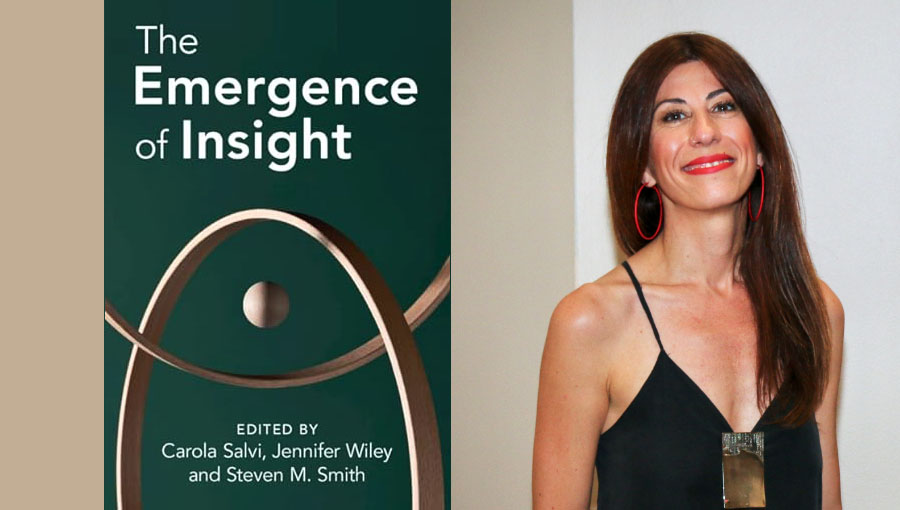Human Rights Researcher: Alumna Chiara De Luca
Born near Naples, Italy, Chiara De Luca graduated from John Cabot University in 2012 with a degree in Communications and with a minor in Psychology. After graduation, Chiara’s biggest dream came true: working in human rights around the world.

Chiara De Luca
What made you decide to study at JCU?
At age 16, I had already made up my mind. I had heard about John Cabot from a dear friend living in Rome. At first, I could not believe that the perfect combination of what I was seeking (excellent educational curriculum in English, a team of outstanding lecturers with international expertise, and a student-centered approach) could be hidden in Trastevere, the ancient heart of Rome. I applied to JCU in April 2009 while busy studying for the comprehensive high school exam in my hometown, in the outskirts of Naples. Fortunately, I was accepted and by late August, I had moved to Rome. I remember I visited JCU several times before classes started. Each time I would wander around the courtyard in awe or explore the premises with some new students I had just met during Orientation. I remember Prof. Michèle Favorite, who had advised me on the application process, once said when she ran into me by the Lemon Tree Courtyard, “You really can’t wait to start classes here, can you?”
What motivated you to pursue a career in human rights?
My dream of working in human rights developed little by little. I knew I had always wanted to work in the civil society sector and came to understand which field I wanted to specifically focus on while gaining work experience in multiple countries. At almost 29, I have already worked in seven countries. One of my most memorable adventures was in Pakistan where I conducted fieldwork in several refugee camps on the border with Afghanistan. Fieldwork has helped me to put things into perspective and understand what really matters – the basic rights and freedoms everyone should be entitled to. As I often say, I work, live, and breathe human rights. Today I am based in London and work at a philanthropic foundation where I scope and recommend for funding civil society organizations in Latin America, the Balkans, Central Asia, and the Middle East, with a focus on violence against women, movement building, and reproductive rights.
What do you find most challenging about your job?
Human rights have come under attack, and the civil society space is shrinking with freedoms of opinion, assembly, and association being curtailed all over the world. There is a widespread backlash against feminism and women’s rights at multiple levels. The promotion of gender equality has become controversial. Many environmental activists and human rights defenders in Latin America and Africa have paid with their lives the price of dissenting with government policies. Organizations are regularly silenced as they become more involved in advocating for civil, political, and environmental rights that may challenge government priorities. Working in human rights can be challenging these days but I feel proud to be able to work with so many activists who believe that another world system built on the rule of law and equality for all is achievable.
How did John Cabot University prepare you for your career?
I remember with fondness the classes I took with Prof. Peter Sarram and Prof. Antonio Lopez. Both have this very sincere, professional way of conducting seminars that allow students to easily grasp how much their subjects means to them. In addition to sharing their expertise in communications theory and media practice, they both taught me how important it is to love what you do. I encourage students to engage in class as much as possible because both professors do not ask questions randomly. They are genuinely interested in knowing your opinions and appreciate the value of critical thinking and group discussions.
Do you have any advice for graduating students?
I would encourage graduating students to take some time for themselves, to travel, and intern in a few places before enrolling in graduate school. Life after graduation can be chaotic. Not only are you taking home a degree but also a whole baggage of new experiences that need to be sorted and fully appreciated before embarking on a new adventure.
What advice would you give to students considering JCU?
Carpe diem. You are in Rome for three to four years. Work on your intercultural sensitivity, one of the key soft skills I honed through JCU that has proven valuable in my daily work. Don’t be afraid to take that one class in international relations because maybe you are studying communications or business and it does not fall within your required curriculum. Life is not lived in silos, and everything comes together in the end, whether it’s for a job interview or a graduate school exam. One last thing, learn Italian if you can – your life will be so much more fun when you can order a pizza or gelato yourself!





